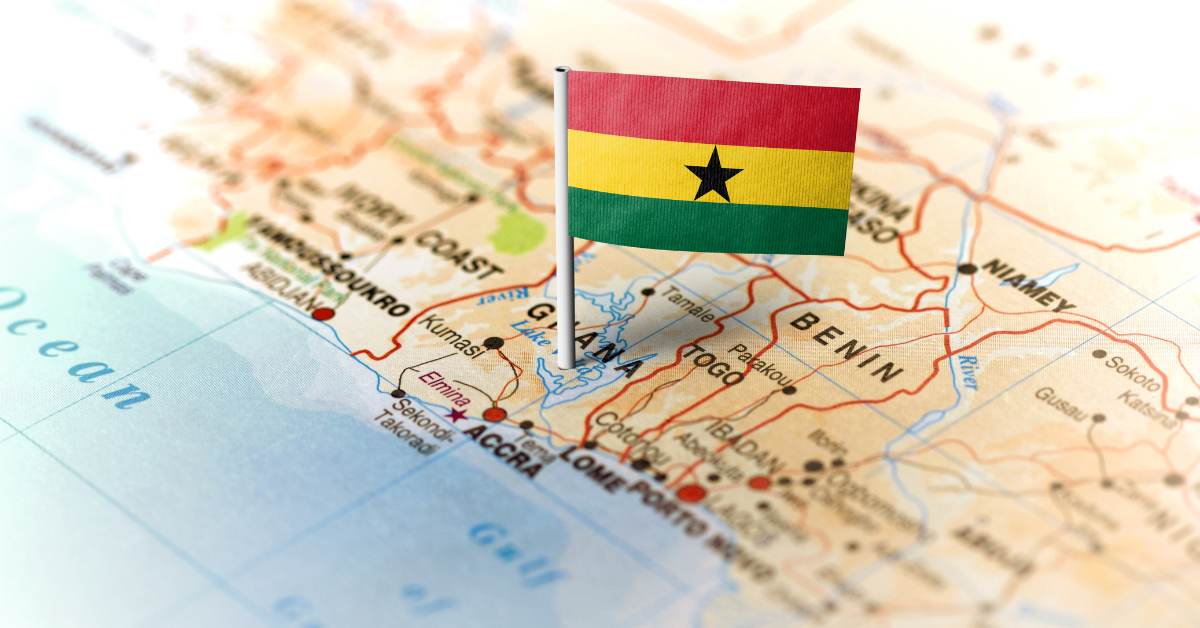In Japanese today, Ghana is usually written in katakana as ガーナ. However, in old documents and maps it sometimes appears as the kanji “加納.” This is not based on meaning but is an example of ateji, where kanji are chosen for their sounds. This article explains the historical reasons why Ghana was once written as 加納.
- The Historical Background of Writing Foreign Place Names in Kanji
- How “加納” Represents Ghana
- Examples of Kanji for Foreign Place Names
- The Other Meanings of “加納” in Japan
- How to Tell if “加納” Refers to Ghana in Old Texts
- Key Points for Learners of Japanese
- The Shift from Kanji to Katakana for Foreign Names
- Conclusion
The Historical Background of Writing Foreign Place Names in Kanji
From the Meiji era through the early Showa period, it was common in Japan to write foreign names not in katakana but in kanji. Newspapers, government documents, and most printed material relied heavily on kanji, and katakana was seen as a supplementary script.
To adapt foreign sounds into written Japanese, characters with similar sounds were combined. For example, “America” became 亜米利加, “Portugal” became 葡萄牙, and “Spain” became 西班牙. These were chosen not for their meanings but for their sounds. Within this cultural practice, “Ghana” came to be written as “加納.”
How “加納” Represents Ghana
To approximate the sound of “Ghana,” the kanji 加 and 納 were selected.
- 加 = “Ga”
- 納 = “Na”
When combined, they form “Gana,” which was then extended to resemble the pronunciation “Gāna.” Importantly, the meaning of the characters (加 = add, 納 = deliver/receive) is irrelevant. They were chosen purely for their phonetic value.
Examples of Kanji for Foreign Place Names
Looking at other cases of ateji helps make Ghana’s “加納” easier to understand:
| Foreign Name | Katakana | Kanji Ateji |
|---|---|---|
| America | アメリカ | 亜米利加 |
| Portugal | ポルトガル | 葡萄牙 |
| Spain | スペイン | 西班牙 |
| Vietnam | ベトナム | 越南 |
| Ghana | ガーナ | 加納 |
This shows that Ghana’s “加納” was not unusual but followed the general pattern of representing foreign words with kanji for sound.
The Other Meanings of “加納” in Japan
A major source of confusion for foreigners is that “加納” is also a Japanese family name and a place name.
| Writing | Reading | Meaning |
|---|---|---|
| 加納 (Ateji for Ghana) | ガーナ | Historical way of writing the foreign country name |
| 加納 (Japanese surname) | かのう・かの | A Japanese family name |
| 加納 (Japanese place name) | かのう | Place names in Gifu, Nara, and other areas |
Thus, the same two characters can mean very different things depending on context. Reading the surrounding words is key.
How to Tell if “加納” Refers to Ghana in Old Texts
When you see “加納” in an old newspaper or map, you need to determine whether it refers to the country Ghana or to a Japanese location. Here are some guidelines:
| Checkpoint | Likely Ghana | Likely Japanese usage |
|---|---|---|
| Context | Mentions Africa, trade, colonial issues | Mentions addresses, transport, family registries |
| Time period | Common in Meiji–early Showa international reports | Used consistently from Edo to today in local use |
| Nearby words | Accra, gold, coast, English colony | Town, station, surname |
The important thing is that context reveals whether “加納” means Ghana or something else.
Key Points for Learners of Japanese
For Japanese learners, “加納” can be confusing. Here are the three key things to remember:
- The standard modern form is katakana “ガーナ.”
- “加納” as Ghana is a historical ateji, not used today.
- “加納” also exists as Japanese surnames and place names, so context is essential.
By keeping these in mind, you can avoid misunderstandings when reading old documents.
The Shift from Kanji to Katakana for Foreign Names
How foreign words are represented in Japanese has changed over time.
| Period | Common Representation | Characteristics |
|---|---|---|
| Edo–early Meiji | Kanji ateji | Matched to a kanji-dominant writing culture |
| Late Meiji–early Showa | Mix of kanji and katakana | As education spread, katakana became more common |
| Postwar–Modern | Katakana | Foreign names standardized into katakana |
This shows that “加納” reflects a historical stage of Japanese writing culture.
Conclusion
- Ghana was written as 加納 because of the ateji practice, which used kanji for sound.
- 加 = “Ga,” 納 = “Na.”
- 加納 also exists as a Japanese surname and place name, so meaning depends on context.
- In modern Japanese, foreign country names are always written in katakana (“ガーナ”).
“加納” may mean Ghana, or it may mean a Japanese name or location. Understanding its historical background helps avoid confusion, and knowing that katakana is the present standard makes reading easier for learners today.






